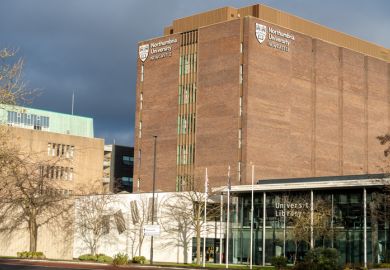Eye-watering contribution rates proposed by UK higher education’s biggest pension fund have left the sector facing a fresh round of industrial unrest, with members’ benefits potentially back up for debate once more.
In a valuation report published on 3 March, the Universities Superannuation Scheme said contributions from employers and staff would need to rise from the current 30.7 per cent of salaries to between 42.1 per cent and 56.2 per cent.
The deficit of the fund, which covers 340 employers has about 400,000 active and retired members, is now estimated to stand at between £14.9 billion and £17.9 billion.
The USS said it would need more support from universities, including a moratorium of at least 12 years on employer exits from the scheme, for the 42.1 per cent contribution rate to be applied.
The current measures proposed by Universities UK, which represents employers, would allow for the 49.2 per cent rate. But if these did not go ahead, contributions could rise to 56.2 per cent – equating to an average increase of £8,500 per member per year.
UUK said the proposed rates were “unaffordable for employers, risk pricing even more staff out of the scheme, and undervalue the collective and enduring financial strength of the participating employers”.
UUK will consult employers on next steps later this month and is expected to reopen the question of the level of pension benefits that universities can afford to support.
But any attempts to water down payments will likely be heavily resisted by staff, who have taken strike action several times in recent years to protect their pensions.
Jo Grady, general secretary of the University and College Union, said “problems” with the USS’ valuation methods and assumptions “have not been properly addressed despite widespread dissatisfaction among members and criticism from across the pensions industry and the higher education sector”.
Employers “need to show higher education staff that their commitment to the USS is serious by working with the UCU and the USS on covenant support measures”, Dr Grady said, adding: “UCU will be holding a special sector conference for higher education branches to decide our next steps and cannot rule anything out.”
UUK said it would hold further discussions in the days ahead with the USS and the Pensions Regulator, asking for the USS to publish “clear reasoning” for the much higher level of contributions it says are required.
UUK said it had received actuarial advice that it should be possible to afford current benefits based on member contributions of percentages of salary ranging from the mid- to high 30s. Contributions are already set to rise to 34.7 per cent in October.
According to UUK, the USS has placed “considerable weight” on Trinity College, Cambridge leaving the scheme in 2019, which is why it says it needs additional assurances on its covenant from employers. However, UUK said there were no other employers looking to exit the scheme as, in practice, the vast majority of employers could not afford to leave the scheme because the costs of exiting are so high.
Dame Kate Barker, chair of the USS trustee board, said trends in financial markets made USS pensions “much more expensive today than in the past”.
“I believe everyone involved with the USS wants to find a way forward, consistent with our legal and regulatory duties, that provides valuable and secure pensions, and that puts the scheme on a sustainable footing. We are committed to being as collaborative and constructive as we can in supporting UUK and UCU’s discussions to this end,” Dame Kate said.
Register to continue
Why register?
- Registration is free and only takes a moment
- Once registered, you can read 3 articles a month
- Sign up for our newsletter
Subscribe
Or subscribe for unlimited access to:
- Unlimited access to news, views, insights & reviews
- Digital editions
- Digital access to THE’s university and college rankings analysis
Already registered or a current subscriber?








